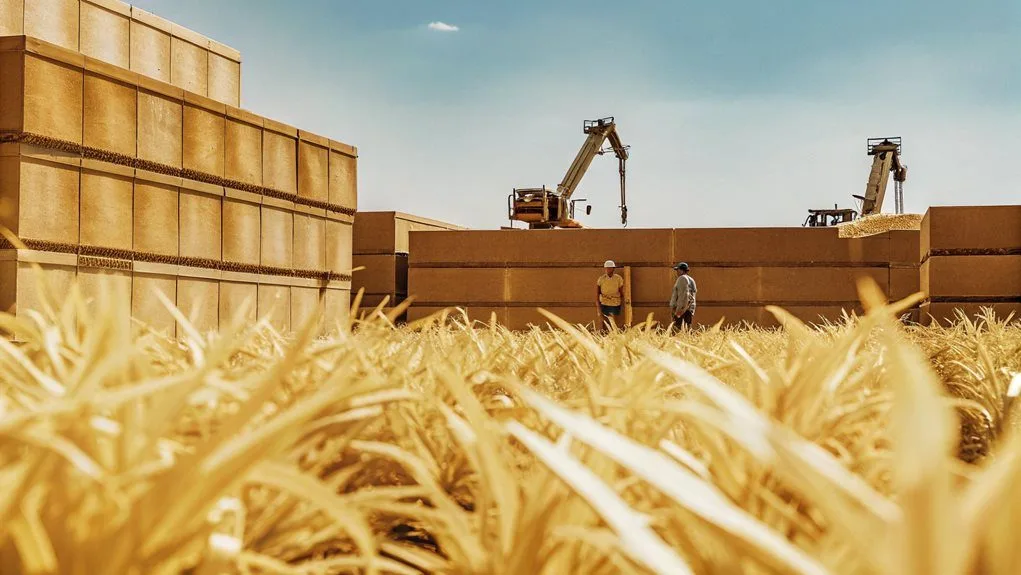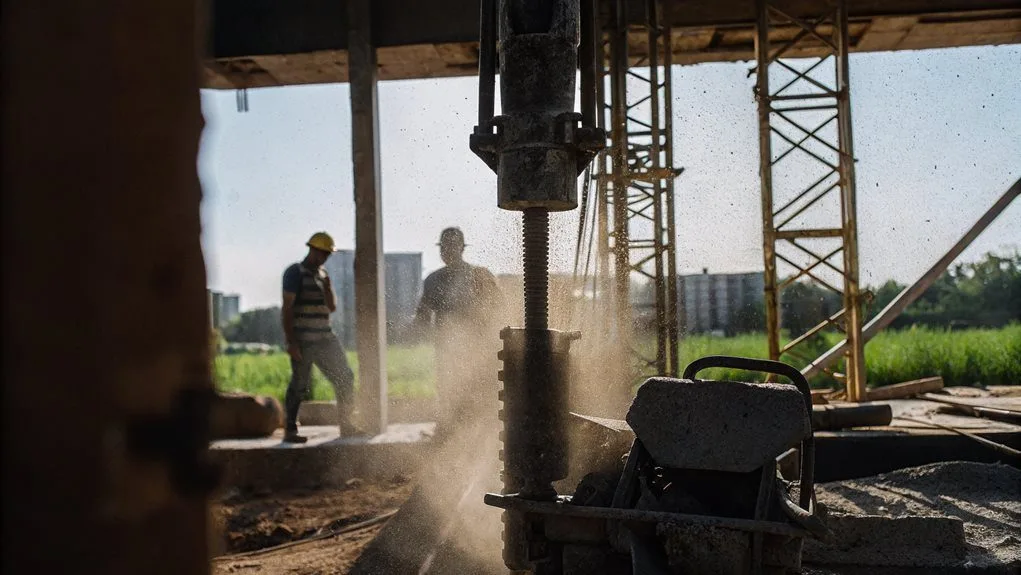Navigating the complex terrain of heavy equipment rental for construction projects is a critical task that every contractor and project manager faces. The quest for reliable, efficient, and cost-effective machinery—from excavators to loaders—is more than just a necessity; it's a strategic endeavor to ensure project success. Understanding this need, our discussion is tailored to demystify the process and offer solutions that match your project requirements, ensuring that you're equipped to make informed decisions.
Choosing the right rental company often feels like searching for a needle in a haystack, compounded by the pressure to stay within budget while not compromising on quality. With years of experience in the construction industry, we recognize these challenges and are here to guide you through the maze of options. Through a detailed exploration of the available types of heavy equipment, key factors for consideration, and practical tips for maximizing efficiency and cost savings, this article promises to be your compass in the world of heavy equipment rentals.
As we delve deeper, you'll find the insights necessary to navigate these decisions with confidence, encouraging you to read on and discover the solutions that await.
Key Takeaways
- Evaluate equipment specifications, rental terms, and maintenance records when choosing heavy equipment for construction projects.
- Renting heavy equipment offers flexibility, cost-effectiveness, access to latest technology, and enhances project efficiency.
- Choose a reputable rental company with a wide range of equipment, prioritization of maintenance, and responsive customer support.
- Maximize efficiency and cost savings by selecting appropriate machinery, opting for flexible rental periods, regular maintenance, and operator training.
Types of Heavy Equipment for Construction
When it comes to construction projects, a variety of heavy equipment is utilized to efficiently and effectively carry out tasks such as excavation, earthmoving, and material transportation. Construction equipment plays a crucial role in ensuring the smooth progress of construction projects. Some of the most commonly used heavy machinery in construction include backhoe loaders, excavators, bulldozers, and compactors.
Excavators are versatile machines that are primarily used for digging and earthmoving tasks on construction sites. They are equipped with a bucket attached to a hydraulic arm, allowing for precise and efficient excavation. Bulldozers, on the other hand, are ideal for moving large quantities of soil, sand, or rubble. With their powerful blades, they can push and level materials with ease.
Backhoe loaders combine the capabilities of a loader and a backhoe, making them highly versatile for various construction tasks. They have a front bucket for loading and a rear arm for digging. Compactors, on the other hand, play a crucial role in creating a solid foundation for construction projects. They are used to compact soil, gravel, or asphalt, ensuring stability and durability.
In addition to these heavy machinery, backhoe attachments such as augers, hammers, and grapples can further enhance the capabilities of backhoe loaders, enabling them to perform a wider range of tasks. Overall, the use of construction equipment and heavy machinery is essential for the successful completion of construction projects.
Factors to Consider When Renting Heavy Equipment
To ensure a successful heavy equipment rental experience for construction projects, it is crucial to carefully consider various factors before making a decision. Here are the key factors to consider when renting heavy equipment:
- Equipment specifications: Evaluate the equipment's specifications, such as capacity and power, to ensure it meets the project requirements. This will help you choose the right equipment that can efficiently handle the tasks at hand.
- Maintenance record: Review the rental company's maintenance record to ensure that they provide reliable and well-maintained equipment. Regular maintenance ensures that the equipment operates smoothly and minimizes the risk of breakdowns during critical project phases.
- Rental terms: Scrutinize the rental terms, including pricing, rental duration, and additional fees. Understanding these terms will help you make an informed decision and avoid any surprises in terms of costs or rental duration.
- On-site support and emergency services: Check the availability of on-site support and emergency services provided by the rental company. Having access to on-site support can be crucial in case of equipment breakdowns, ensuring minimal downtime and project delays.
- Insurance coverage: Assess the insurance coverage options provided by the rental company. Adequate insurance coverage protects you against potential damages or liabilities that may occur during the rental period.
Top Benefits of Renting Heavy Equipment for Construction Projects
Renting heavy equipment for construction projects offers numerous benefits that can enhance project efficiency and reduce financial burdens. One of the key advantages of heavy equipment rental is its flexibility. Construction projects often require a variety of equipment, and renting allows businesses to access the specific machinery they need without the need for long-term investments or upfront costs. This flexibility also extends to the ability to scale up or down based on project requirements, saving both time and resources.
Additionally, renting heavy equipment is cost-effective. Businesses can avoid the high upfront costs associated with purchasing equipment, as well as the long-term maintenance and repair expenses. Rental companies typically cover the maintenance and repair costs, reducing the financial burden on the business.
Another benefit of renting heavy equipment is the ability to access the latest technology and advancements in construction equipment. Rental companies often offer a wide range of equipment options, ensuring that businesses can utilize the most efficient and technologically advanced machinery for their projects. This helps to enhance project efficiency and productivity.
How to Choose the Right Heavy Equipment Rental Company
A crucial aspect in finding the right heavy equipment rental company is thoroughly evaluating their equipment variety and maintenance offerings. When choosing a heavy equipment rental company for your construction project, consider the following factors:
- Equipment Variety: Ensure that the rental company offers a wide range of equipment, such as excavators, loaders, and compactors, to meet the specific needs of your project. This ensures that you have access to the necessary machinery to complete your construction tasks efficiently.
- Maintenance: Look for rental companies that prioritize equipment maintenance. Check if they provide on-site assistance and professional maintenance by experienced technicians. Reliable equipment performance is essential to avoid project delays and ensure safety on the construction site.
- Customer Support: Opt for a rental company that offers responsive and accessible customer support. This includes flexible rental periods to accommodate your project timeline and prompt addressing of any equipment issues that may arise during the rental period.
- Customer Reviews: Take the time to read customer reviews and ratings of the rental company on platforms like Yelp. This will give you insights into their reputation, customer satisfaction, and reliability in providing heavy equipment rentals.
- Rental Rates: Compare rental rates and terms among different companies. Consider factors such as rental fees, deposit requirements, and insurance coverage to choose a cost-effective and transparent rental partner for your construction needs.
Tips for Maximizing Efficiency and Cost Savings With Heavy Equipment Rental
When aiming to maximize efficiency and cost savings with heavy equipment rental, it is crucial to carefully select the appropriate machinery for the job in order to minimize downtime and enhance productivity. By choosing the right equipment, construction projects can run smoothly and efficiently, reducing the risk of delays and costly mistakes.
One way to maximize efficiency is by opting for flexible rental periods. This allows you to match the rental duration with the actual usage of the equipment, ensuring that you only pay for what you need. This can result in significant cost savings, especially for projects with varying timelines or unforeseen delays.
Another important consideration is the availability of on-site service options. Rental companies that offer on-site maintenance and repairs can help ensure that the equipment remains in optimal condition throughout the rental period. This minimizes downtime caused by equipment breakdowns and increases productivity on the job site.
Furthermore, technology solutions provided by rental companies can greatly enhance efficiency. Real-time monitoring and tracking systems enable project managers to keep tabs on the equipment's location, usage, and maintenance requirements. This allows for better planning and resource allocation, ultimately improving overall productivity.






